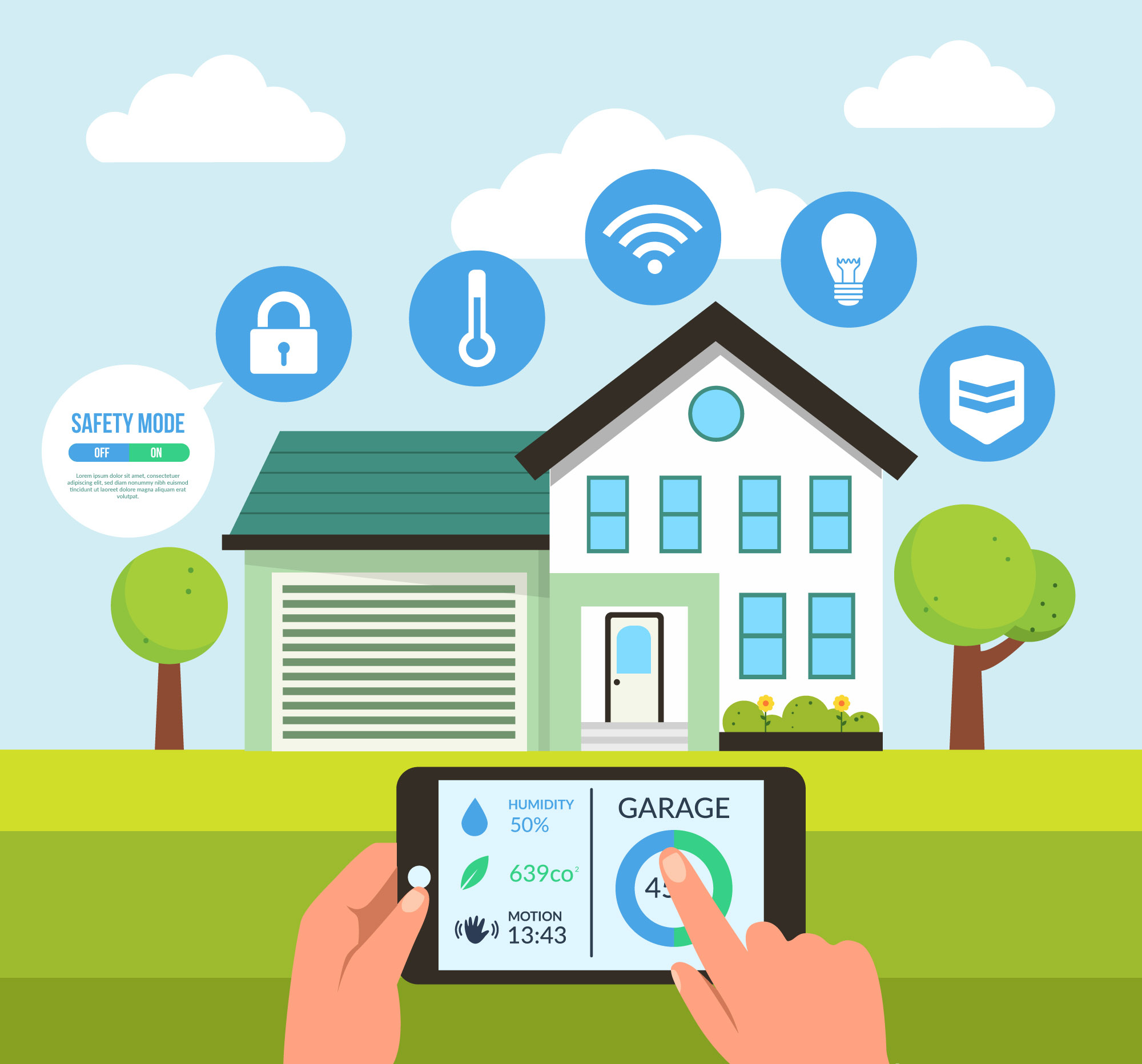The Internet of things or the IoT, refers to the interconnection between devices, the information they send and receive to one another, like a conversation. This connection is made possible through the sensors the devices are equipped with. The IoT is part of the “fourth industrial revolution”, linked to the big data and the digitalization of items. Thanks to the Internet of Things, the information we are looking for will help us to know more about our activities at anytime, anywhere and at any place of our life. How so? Because it is creating a connected world.
Moreover, the IoT is meant to be useful and helpful in our daily life.
Have you ever heard of “connected houses”? They are houses with connected devices (inside or outside their walls) that allow us (through a smartphone, tablet or computer) to:
- control a TV, alarms, security cameras,
- change the temperature inside the house,
- check the status of food in the fridge or in the oven,
- turn on/off music or the light and more.
It definitely changes our lifestyle, on both a personal and professional point of view.
In business, it helps companies guaranteeing the product they are selling has the best characteristics before and during the production. For example, a manufacturing machine will be able to give information to the producer so he can analyze it, act on the production if needed before it is completed. Once the product will be sold and is being used, its sensor will send information to the producer about its quality of life. The technology is providing information that gives precise and efficient results to create a product of good quality in order to increase the sales and to propose a positive and satisfying user experience.
The Internet of Things is helping each and one of us to have a better quality of life. The connection between our devices, gives us the opportunity to react faster, to help people around us, to learn and create. We can choose whether to be part of it or not. In fact, some people are averse to the idea of using connected devices as “connected” can be linked to “traceability”, “no privacy” and “negativity”. However, we can define which devices we want and do not want to be connected and their use.
The European Commission is supporting the technology. In order to increase the development of the IoT into the European countries and abroad, the Commission is working with industries, institutions and organizations with the purpose of helping the European citizens and businesses to develop their skills into the digital market.
The future of IoT is promising. According to Business Insider, by 2025 more than 64 billion of IoT devices will be installed.
